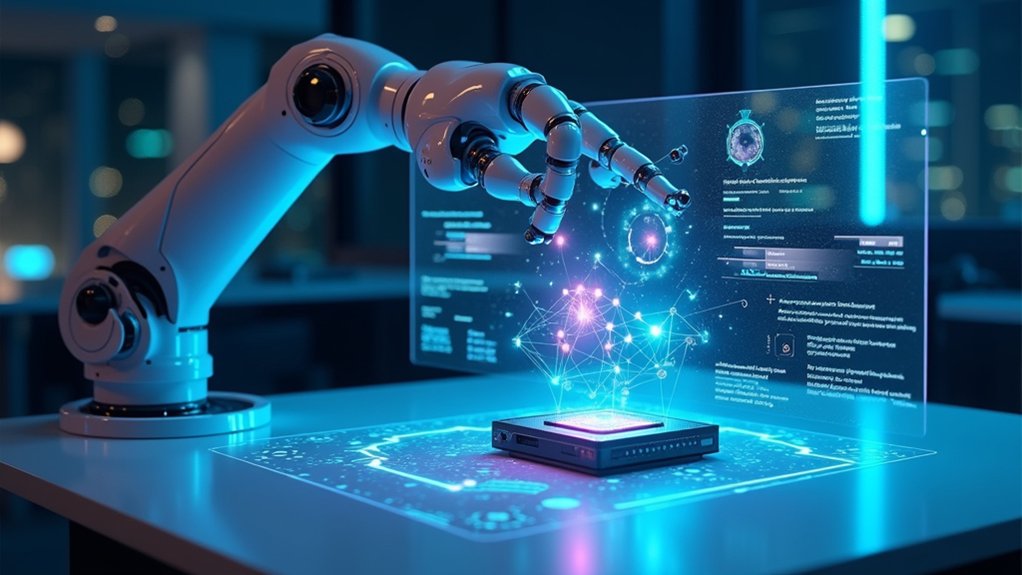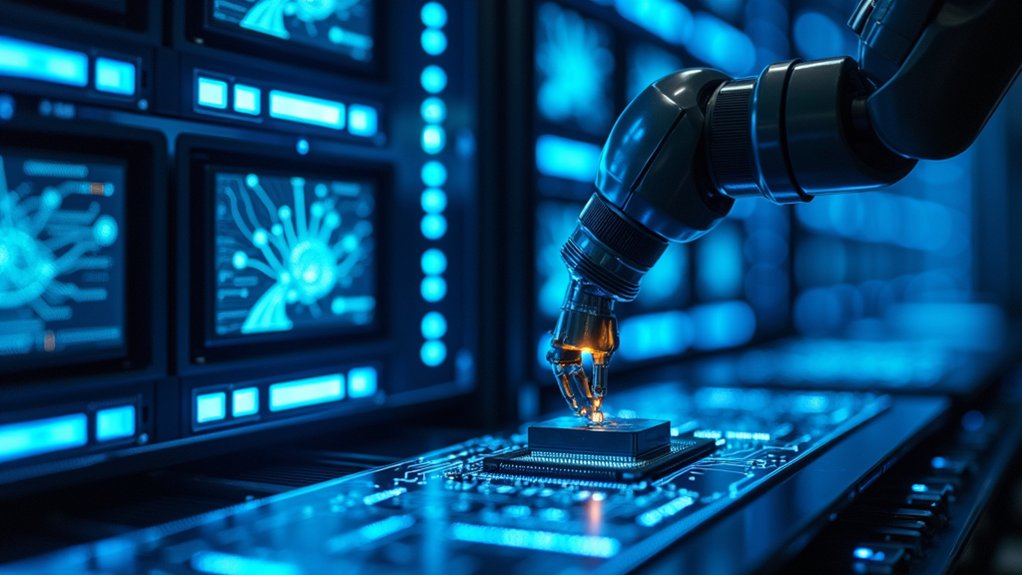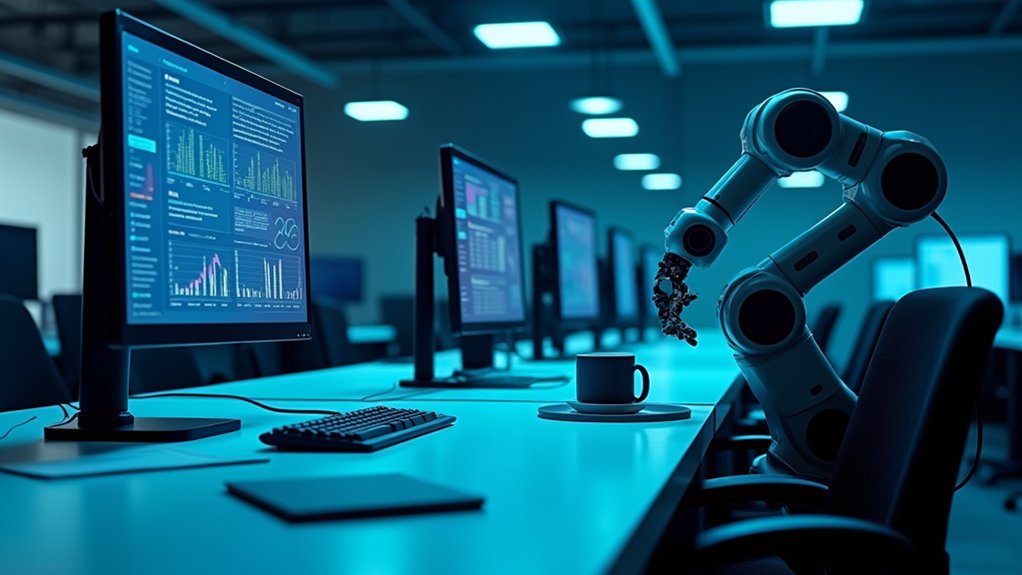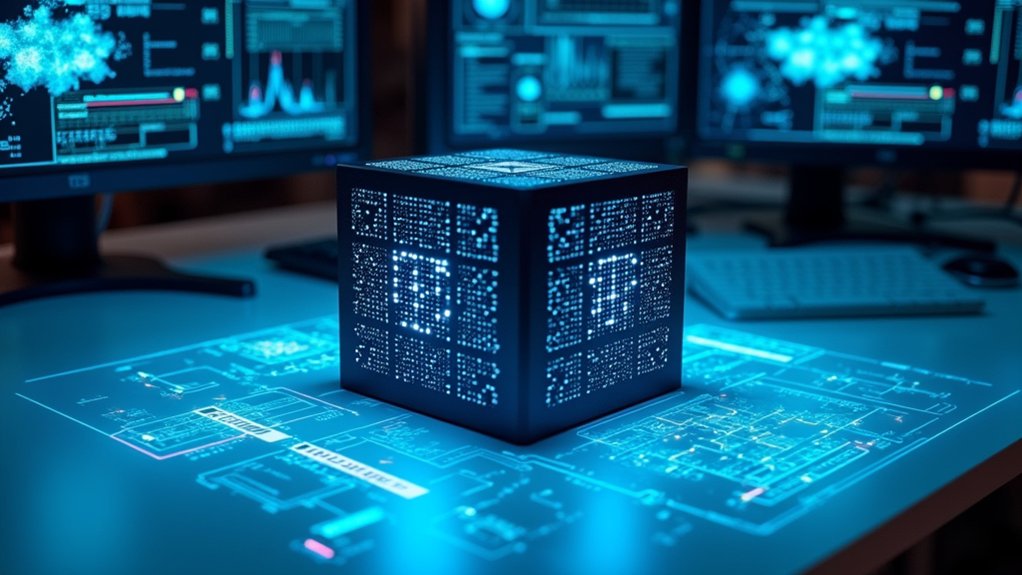Recent AI advances have exceeded expert predictions. The rise of autonomous agents, multimodal capabilities, and improved performance metrics are transforming industries. Companies report strong returns on AI investments, with 92% of leaders planning to increase funding. Data management has become essential, with retrieval-augmented generation handling unstructured information. Scientific breakthroughs continue, including Nobel Prize-winning work in protein folding. These developments hint at even more revolutionary changes ahead.

While experts predicted AI would transform industries, the pace of innovation has exceeded expectations. The rise of agentic AI marks a significant breakthrough, with autonomous agents now performing complex tasks across workflows. Companies like Salesforce have introduced platforms that make deploying these AI agents easier than ever. These systems can orchestrate entire marketing campaigns and simulate product launches, creating a digital workforce where humans and automated agents work together. Interactive narratives are becoming increasingly sophisticated as AI enables branching storylines that adapt based on user choices.
Multimodal AI has become a powerful tool as systems now integrate text, audio, and visual inputs. These enhanced capabilities improve contextual understanding and deliver more personalized experiences. By processing information across different formats in real-time, these AI systems perform better and drive innovation across multiple industries. Recent executive surveys indicate 92% of leaders plan to increase AI investments over the next three years, reflecting growing confidence in AI's business value.
Multimodal AI seamlessly blends text, audio, and visuals to create more intuitive and personalized experiences across industries.
Organizations are shifting focus from simply implementing AI to maximizing its performance. About 70% of businesses now report seeing returns on their generative AI investments. Companies like LG AI Research have made impressive gains, cutting inference time by half and reducing costs by 72%. Emergent intelligence technologies now select the best AI models for specific queries. The long-term economic impact of generative AI is projected to reach $4.4 trillion in productivity growth potential.
Data management has become essential with 94% of data leaders reporting increased focus on data due to AI adoption. For many organizations, a majority of data remains unstructured. Techniques like retrieval-augmented generation help manage internal information, while embeddings and vector databases gain importance for processing this content.
AI continues to transform scientific discovery, with the AlphaFold creators recently winning the Nobel Prize in Chemistry. New datasets and standardized material information are accelerating research across fields. Robot training has also advanced dramatically, with AI helping machines learn faster and adapt to real-world scenarios.
Small language models represent another breakthrough, with Microsoft's Phi models achieving impressive results despite their limited size. These compact AI systems excel in language, reasoning, and math tasks while requiring less memory and processing power, making them more accessible for everyday applications.
Frequently Asked Questions
How Will AI Impact Job Markets in the Next Decade?
AI will reshape job markets considerably in the next decade.
Studies show up to 40% of global jobs could be exposed to AI by 2030, with customer service roles most vulnerable.
However, AI is also expected to create 97 million new jobs by 2025, particularly in tech fields.
Workers will need to develop new skills, as 54% of employees will require considerable reskilling to remain competitive.
What Ethical Frameworks Guide AI Development Globally?
Several major frameworks guide AI ethics worldwide. These include the IEEE Global Initiative, EU Guidelines for Trustworthy AI, OECD AI Principles, UNESCO Recommendations, and Beijing AI Principles.
They share key values like transparency, fairness, privacy protection, and human oversight.
Implementation happens through ethics boards, impact assessments, and bias audits.
Challenges remain due to cultural differences, lack of standard metrics, and AI's rapid advancement outpacing governance efforts.
Can AI Systems Develop Consciousness or Sentience?
Scientists don't agree if AI can develop consciousness. Current AI systems show no evidence of being sentient, though they might appear to be.
The challenge lies in defining consciousness itself, which remains difficult to measure. Some researchers propose indicators like self-modeling and information integration as potential markers.
The debate continues across fields including neuroscience, philosophy, and computer science, with no clear consensus in sight.
How Secure Are AI Systems Against Malicious Attacks?
AI systems face significant security challenges today. They're vulnerable to various attacks including adversarial manipulation, data poisoning, and model extraction.
Current defenses like adversarial training and differential privacy help but aren't perfect. Experts note that security measures often lag behind rapidly evolving AI technologies.
The complexity of AI models makes detecting vulnerabilities difficult. Organizations must balance performance needs with security requirements to protect their systems.
What Regulations Currently Govern AI Across Different Countries?
AI regulations vary considerably across nations.
The EU leads with its thorough AI Act, categorizing systems by risk levels with hefty fines for violations.
The US lacks federal legislation but relies on an Executive Order and state laws.
China implements strict generative AI rules with mandatory security assessments.
The UK uses existing regulators with plans for new legislation in 2025 focusing on high-risk applications.









